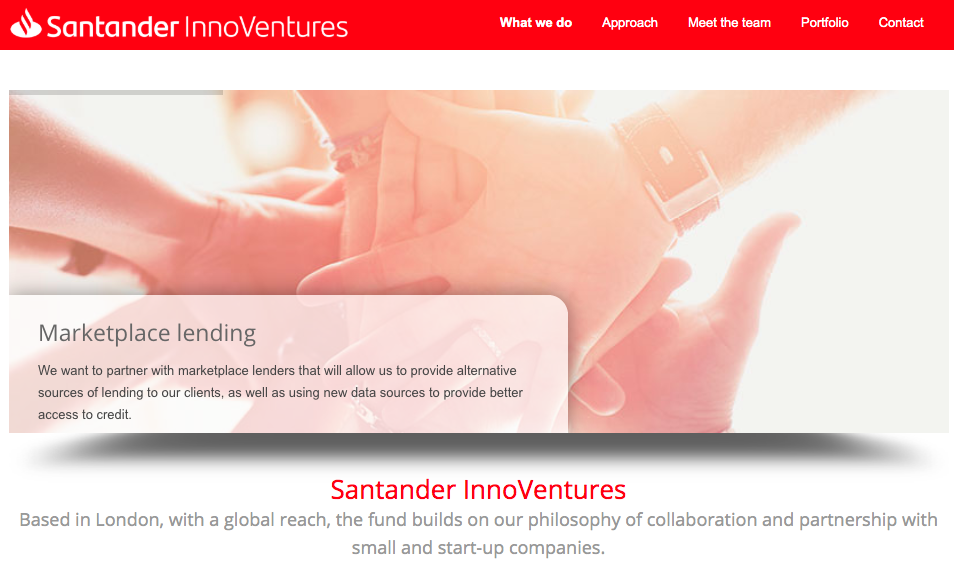

It’s a venture capitalist’s job to distinguish between winners and losers. Most of the time, however, funding in fintech is not that black and white. Regional differences each have pros and cons, and there is a balance between chasing the newest fintech idea and investing in proven technologies the industry knows work well.
We spoke with Manuel Silva Martinez, partner and head of investments at Santander InnoVentures (SIV), about regional differences in fintech, what he has his eye on for this year, and which of SIV’s investments he’s most proud of.
The U.S., Europe, and China are major fintech hubs. Which region do you view as the frontrunner?
Manuel Silva Martinez: Each region has built fintech on their own singularities. The U.S. has built fintech on a strong direct-to-consumer culture to address an extremely fragmented banking sector that has underinvested in technology, but consumes technology from vendors.
Europe’s banks have been more innovative and have driven the agenda, while start-up innovation has been hindered by national clusters, making smaller companies unattractive for growth funds. Only now are we seeing companies with regional ambitions fueled by larger VCs challenging bank-driven innovation.
China’s banking regulation did not allow for much competition, so competing against state-owned banks did not make sense. Instead, innovation has happened at the fringes of the industry, boosted by the emergence of mobile, digital, ecommerce and new platforms.
While risking being excessively simplistic, I’d say the most disruptive new models come from China, the U.S. produces the best B2B technology, and Europe will be most changed by the emergence of new fintech client propositions.
Is there a fintech subsector in particular you have your eye on this year?
Martinez: We look across the entire fintech value chain but the quality of opportunities we see varies from theme to theme.
We have also been organically looking for opportunities in the capital markets; we are big proponents of B2B blockchain applications and have found that capital markets is the perfect space for that.
On a slightly more forward-looking note, we are developing a number of theses on how fintech interacts with important customer decisions, and on how those customer journeys are changing. This is making us look at opportunities in PropTech (as it relates to the mortgage cycle), Mobility (car ownership), Logistics (trade and supply chain finance) and EdTech (wealth and human capital), etc.
Overall, we try to keep very close to where ‘classic fintech’ is going while keeping an eye on how the industry is reshaping itself by challenging its boundaries and basic business models.

In a lot of industries location matters. Does the location of a fintech start-up influence your investment decision?
Martinez: It does and it does not. Today, knowledge and capital are more liquid than ever, and great companies can be built anywhere. This is a dramatic change from the old days where thriving ecosystems had to agglomerate capital, talent, and clients, which was self-limiting for smaller ecosystems to flourish. We go where the opportunities are, as opposed to waiting for them to come to us.
At the same time, we actively engage our companies and spend time with them, go through their strategy, chat with their teams – outside of the more formal Board setting. Thus, we would naturally be more engaged with companies where our team is located. We now have a small antenna team in San Francisco, London has been home to SIV since inception, and we are also traveling very recurrently in all the other major hubs in Europe that are just a short flight away.
What do you consider to be Santander’s most successful investment so far?
Martinez: Success is a very subjective concept. From a purely financial perspective, we are proud to be investors of companies that have made the headlines for reaching or aiming at unicorn status, like iZettle, Ripple, Kabbage, Creditas, Trulioo, Tradeshift, etc.
But we also look at success at the micro-level; I feel proud of how our actions, our support, whether through activating Santander or through our own skills and network, accelerate our companies. In that sense – and our CEOs are best to speak about this – I am particularly proud of how we have supported the likes of Autofi, Bonify, Crosslend, Elliptic or Roostify, among others, in driving growth and reaching their next level of success.
